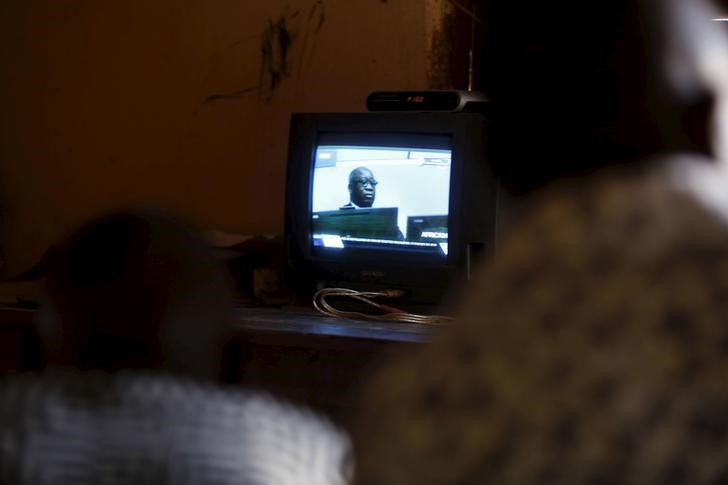By Thomas Escritt
AMSTERDAM (Reuters) - Former Ivory Coast President Laurent Gbagbo, charged with fomenting a 2010 crisis that led to 3,000 deaths, actually tried to resolve the deadlock that plunged the country into civil war, his lawyers said on Monday.
Opening his defence against war crimes charges at the International Criminal Court in The Hague, they portrayed him as a victim of French colonial meddling who had sought peace.
Gbagbo, the highest ranking politician ever to appear before the court, stands accused of stoking the ethnic strive that sparked a four-month civil war after he refused to step down following his failed bid to be reelected president in 2010.
The case has the potential to stoke political tensions in Ivory Coast, the world's largest cocoa grower, where Gbagbo remains influential. His trial opening last week was attended by hundreds of his supporters and closely followed at home.
Gbagbo's lawyers said prosecutors had presented a selective account of recent Ivory Coast history, glossing over alleged crimes committed by his successor and political rival Alassane Outtara, who was re-elected last year.
"Laurent Gbagbo continually sought solutions to the post-electoral crisis, proposing for example that votes be re-counted," said defence lawyer Jennifer Naouri. "Ouattara didn't agree to this."
Naouri said prosecutors portrayed Ivory Coast's defining political conflict in overly simple terms, ignoring a string of attempted coups allegedly launched by Ouattara's supporters during Gbagbo's decade-long presidency.
Last week, prosecutors presented detailed descriptions of alleged crimes, including mass rape and murder by supporters of a president determined to keep power at any price.
The high-profile case is seen as a test of the credibility of the 13-year-old court, which has secured just two convictions since it was established.
A case against Kenyan President Uhuru Kenyatta collapsed last year amid intense lobbying by Kenya and its African allies, testing its ability to prosecute senior figures.
Gbagbo's supporters have criticised the court for only bringing charges against him, his wife Simone and his associate, youth leader Charles Ble Goude, while leaving Ouattara's supporters unchallenged.
His lawyers said his downfall and arrest after the election was punishment for crossing France, the former colonial power that intervened militarily to end the civil war in 2011, allowing Ouattara to take office.

"Gbagbo will never be able to shed the image of an anti-French nationalist that has been stuck to him by supporters of Alassane Ouattara," Naouri said. "The French establishment will never accept him."